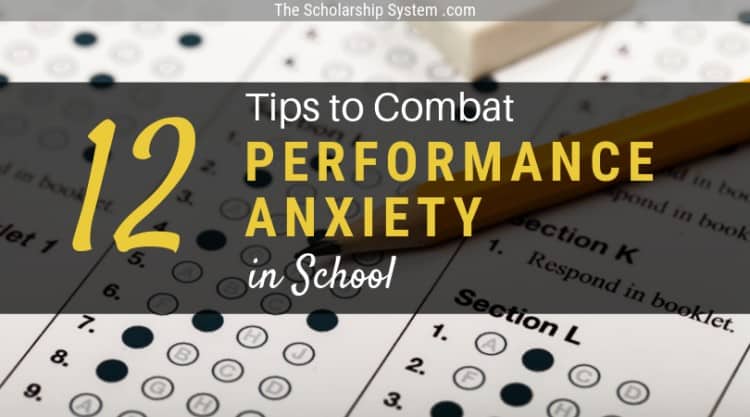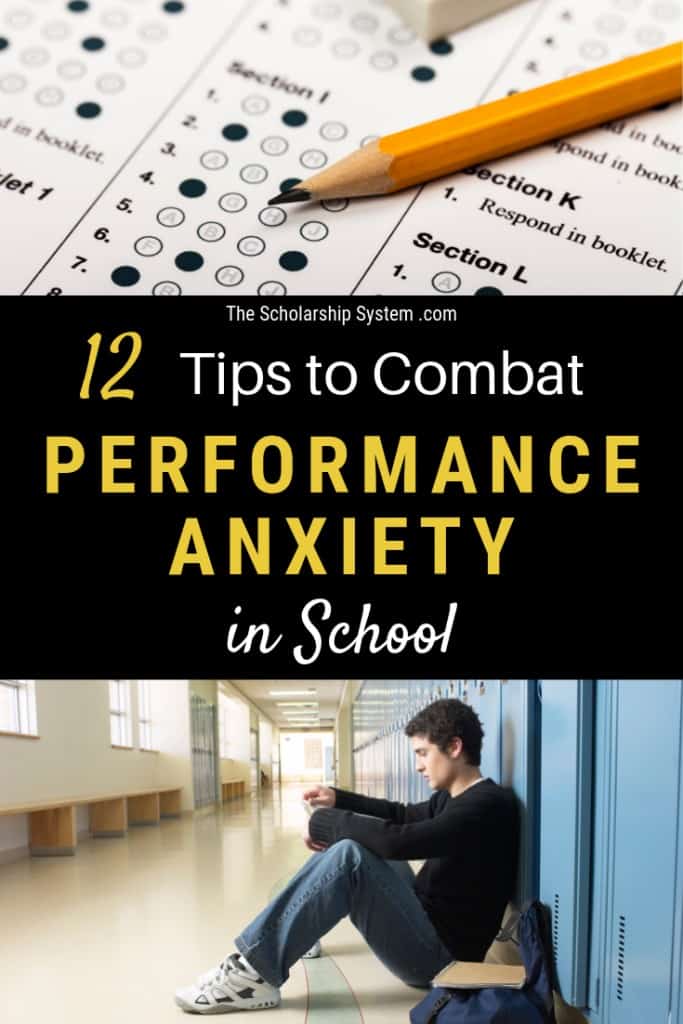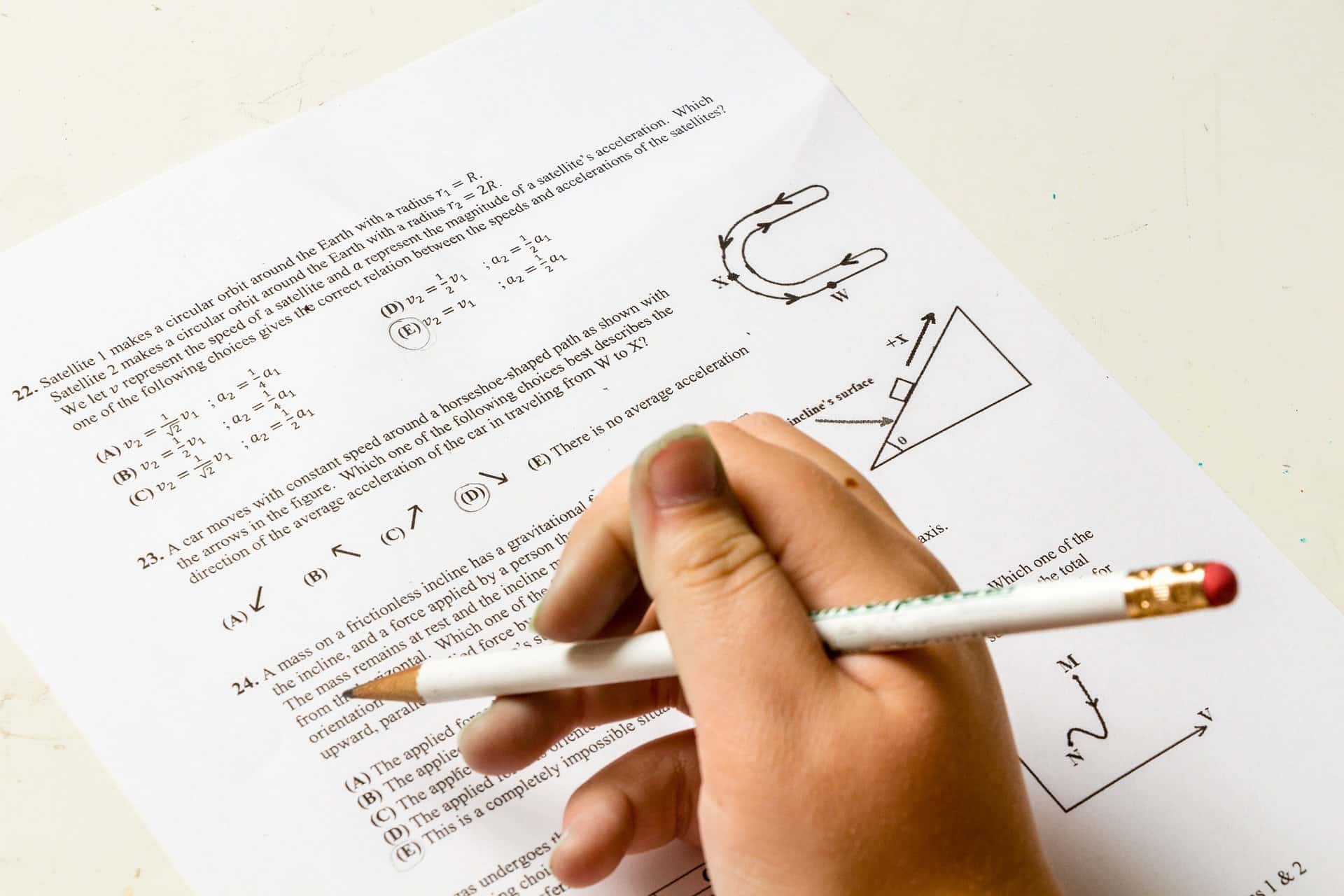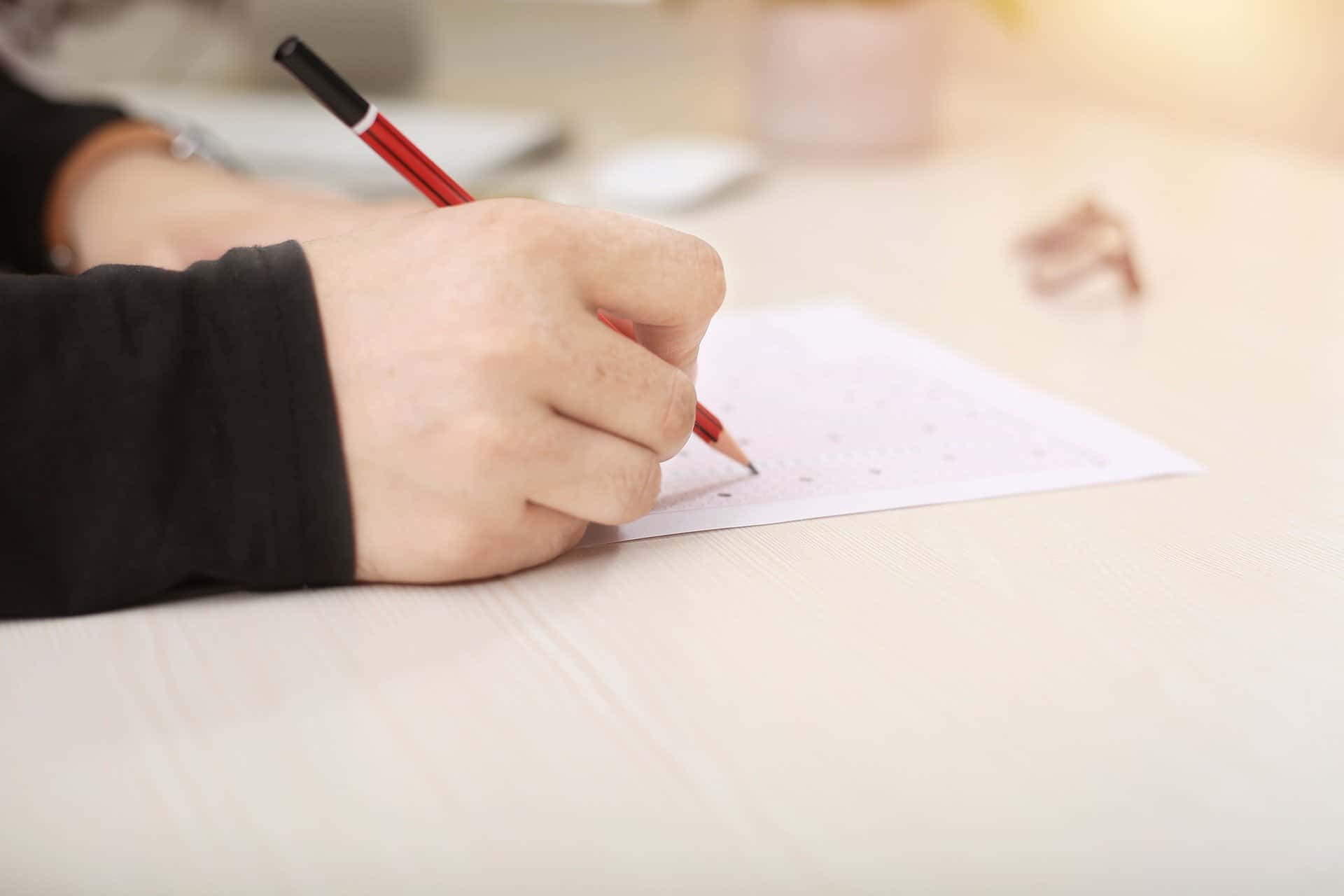Updated on August 30th, 2021
At some point in every student’s life, they are probably going to suffer from performance anxiety in school. The occasional bout of anxiety is a normal part of life. However, if feelings of anxiety are prolonged, interfere with daily activities, or keep getting worse over time, it might not be typical anxiety; it could be an anxiety disorder.
An estimated 31.9 percent of children aged 13 to 18 have some form of anxiety disorder. In fact, anxiety disorders are more common in the United States than any other mental health issue, including depression.
There are several forms of anxiety disorders, too. Generalized Anxiety Disorder usually results in excessive worry about a variety of things, such as a person’s health, social interactions, and even parts of their everyday life, like school. It is usually severe enough to interfere with the person’s life, potentially by harming concentration, causing sleeping issues, or not allowing the student to think through the sense of worry.
However, a person could also have a Panic Disorder, Phobia-Related Disorder, Social Anxiety, or any number of other variants.
Often, performance anxiety at school manifests during specific situations. For example, a student may be so worried about a test they can’t take it effectively, or even at all. Performance anxiety can also hinder a student’s ability to speak in front of a class, either during a presentation or simply when called upon by the teacher.
Performance anxiety in school can significantly impede a high schooler’s progress. It can cause their grades to fall or make them too anxious to even attend classes on certain days.
Whether the school anxiety qualifies as an anxiety disorder – in a medical sense – depends on the student’s exact circumstances and symptoms. However, even if the anxiety about school isn’t that severe, it can still hinder a student’s ability to learn and thrive in class.
If your student may be suffering from performance anxiety in school, here’s what you need to know.
If your student is trying to figure out how to pay for college tuition and other educational expenses, scholarships can make it easier. If you and your student want to learn more about how scholarships can help them graduate debt-free and how to find amazing scholarship opportunities, sign up for our free college scholarship webinar! Take a trip over to http://thescholarshipsystem.com/freewebinar to reserve your spot today.
Contents
The Most Important Tip: When and How to Seek Professional Help for School Anxiety
First and foremost, it’s important to understand anxiety can be a serious mental health condition. If your student is suffering from anxiety, they may not be able to overcome it alone, even if they give it their best effort.
If your student’s performance anxiety in school is harming their academic performance, hindering their social relationship with classmates, or causing them to miss classes to avoid situations that bring on their school anxiety, they may need professional help from a medical provider. Similarly, if your student has panic attacks at school, working with a mental health professional is the best choice.
This is especially true if your student’s pervasive or concerning anxious thoughts have occurred most days a week for the past six months. However, even if that much time has not passed, speaking with a doctor is never a bad idea.
If your student needs professional help for their anxiety about school, contact your student’s primary care physician. They may be able to go over treatment options or refer your student to a mental health professional who can help assess and treat their anxiety.
Alternatively, if your health insurance allows it, you may be able to select a covered mental health professional on your own without a referral. Usually, you can find out which area doctors or counselors accept your insurance online as well as contact for information and appointments.
Only a medical professional can formally diagnose an anxiety disorder. Self-diagnosis by the student, parental diagnosis, or “diagnosis” through an online test are not sufficient. If you believe your student is suffering from performance anxiety in school or any other anxiety disorder, seek out a licensed medical doctor, psychiatrist, or psychologist. Mental health conditions can be highly nuanced, and anxiety symptoms may be related to other psychological disorders or physiological conditions. When in doubt, see a doctor immediately.
Tips for Combating Performance Anxiety in School
If your student experiences anxiety at school, there may be steps they can take to help alleviate it. While these tips do not substitute for care and treatment through a medical professional (and your student should not participate if they are being treated for anxiety or any other mental health condition without clearing it with their doctor), they could provide some benefit.
Test Anxiety Strategies for High School Students
Test anxiety is a type of performance anxiety that focuses on tests, exams, or quizzes. Even when properly prepared, your student may be overcome with fear they will fail or be overwhelmed by the prospect of taking the test.
Symptoms of test anxiety can be physical, such as headaches, nausea, excessive sweating, rapid heartbeat, or light-headedness. Emotional symptoms can include feelings of helplessness, fear, anger, or sadness. There can also be behavioral or cognitive symptoms, like difficulty concentrating, pervasive negative thoughts, or acting out in class.
Certain strategies may reduce test anxiety. Here are some test anxiety strategies for high school students.
Practice Good Study Habits
Studying efficiently and regularly can help reduce test anxiety. If your student spends a little bit of time studying on a consistent basis, they may feel more confident about their level of knowledge, making them less anxious.
Ideally, your student needs to create a system for studying. This can include studying at the same time and place, for the same duration during each session, and being consistent with their schedule even if there isn’t an exam in their near future.
Testing their knowledge on their own may also relieve some anxiety. For example, taking practice tests at home, having a friend or family member quiz them using flashcards, or a similar approach may make test-taking feel more routine, decreasing negative feelings about the experience.
Create a Pretest Routine
Not unlike a bedtime routine, a pretest routine is a set of steps that gets your student into a test-taking mindset. It could involve going over notes while eating breakfast, using their favorite pencil, taking a few minutes to meditate, or anything else they find calming.
Learn Relaxation Techniques
Relaxation techniques can limit or eliminate the effects of anxiety. Meditation, deep breathing, visualizing a positive outcome, or clenching and then relaxing their muscles one at a time can all promote relaxation. Plus, these techniques can be done almost anywhere, making them worth exploring if your student has performance anxiety in school.
Eat Properly and Stay Hydrated
Without the proper fuel, the human body doesn’t work right. If your student doesn’t eat before a test or isn’t well hydrated, they may be more likely to feel physically uncomfortable or mentally foggy at test time, increasing the odds they will be anxious.
Additionally, caffeine and sugar usually act as stimulants in the body. If your student has an energy drink, coffee, or sugar breakfast or lunch, they might experience more anxiety at test time.
Before a test, your student needs to make sure to drink plenty of water and have a balanced meal. Protein and whole grains can give them energy without excess sugar, so they can feel satiated without a massive spike in blood sugar.
Make Time for Sleep and Exercise
Exercise is great for releasing tension and promoting good health, both of which can lead to better academic performance. Getting enough sleep is also critical. Without it, your student’s ability to focus may suffer, causing them to struggle when studying and during tests.
Speak with the Teacher
When your student knows a test is on the schedule, taking a moment to speak with the teacher can help. That way, they can ask questions to make sure they understand what will be on the exam, giving them details that can assist them as they prepare.
Additionally, if your student is diagnosed with an anxiety disorder, the school may be able to offer accommodations to help them. What may be available could vary from one school to the next. However, if your student has a diagnosis, it may be worth asking.
School Anxiety Solutions for Public Speaking and Presentations
Speaking in front of others can be an uncomfortable experience. In some cases, it may even lead to performance anxiety, causing a student to struggle when asked to speak in front of the class.
In severe cases, a person’s fear of public speak may even qualify as a phobia. Glossophobia (the fear of public speaking) is one of the most common phobias in the world, impacting about 25 percent of the population to some degree.
If your student has anxiety when they need to speak in class, there are things they can do to help overcome their fears. While they should talk with a medical professional if they are being treated for any mental health condition before trying any of these tips, here are some options worth exploring.
Select an Interesting Topic
If your student can pick their own topic for a presentation, encourage them to select one that piques their curiosity. People often enjoy discussing subjects they find interesting, and it may make your student less anxious.
Practice, Practice, Practice
Before a presentation, practice is your student’s best friend. The better they understand the material and their talking points, the more automatic the presentation becomes. They won’t have to think as hard to recall critical details, which may reduce anxiety.
Know the Space
If your student is presenting in their usual classroom, then they are probably already familiar with the physical space. However, if they are giving a presentation in a different room, make sure they explore it in advance. This will make the space itself feel less foreign, which may prevent some feelings of anxiety.
Find a Friendly Face
Being able to spot a friendly face in the crowd can help with anxiety. If your student has friends in the class, encourage them to focus on those individuals during their presentation.
Ideally, they would have a few friends spread throughout the room, allowing them to move their gaze and seemingly engage more with the audience. However, even if that isn’t an option, delivering the presentation directly to a friend may feel less intimidating, so it is better to focus on a single person and feel more relaxed than forcing more eye contact with other people.
Expect Success
In most cases, those listening to a presentation want the presenter to succeed. They are hoping to hear interesting information, so, indirectly, they are rooting for the student.
Plus, those who aren’t intent on listening aren’t typically hoping the presenter fails either. Instead, they are usually completely tuned out. That means they might not know if the presentation was bad or good even though they were in the room. For some, this can be comforting, albeit in a bit of a weird way.
Ultimately, all of the tips above can help your student combat performance anxiety in school. However, even the most effective suggestions can’t replace professional help. If your student is genuinely struggling, seeing a doctor is always the smartest move, period.
If your student is trying to figure out how to pay for college tuition and other educational expenses, scholarships can make it easier. If you and your student want to learn more about how scholarships can help them graduate debt-free and how to find amazing scholarship opportunities, sign up for our free college scholarship webinar! Take a trip over to http://thescholarshipsystem.com/freewebinar to reserve your spot today.











Leave a Reply